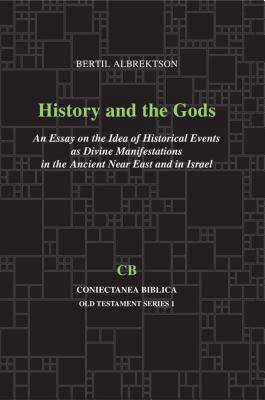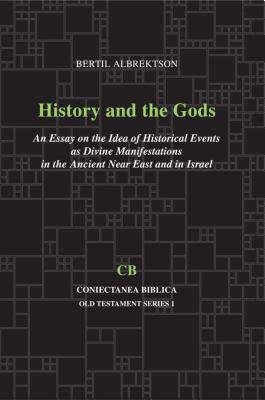
- Retrait gratuit dans votre magasin Club
- 7.000.000 titres dans notre catalogue
- Payer en toute sécurité
- Toujours un magasin près de chez vous
- Retrait gratuit dans votre magasin Club
- 7.000.000 titres dans notre catalogue
- Payer en toute sécurité
- Toujours un magasin près de chez vous
History and the Gods
An Essay on the Idea of Historical Events as Divine Manifestations in the Ancient Near East and Israel
Bertil AlbrektsonDescription
In this classic monograph, Albrektson, in 6 chapters spanning only 110 pages of text, examines the evidence for ancient Hebrew conceptions of divine activity in history against its context in the ancient Near East. The main conclusion is negative--that is, that the distinctiveness of the Old Testament in this regard is a matter of degree not kind. Since its original publication in 1967, the book has been cited over and over as a publication that set forth new directions of understanding and research on the topic of the gods and their involvement in history.
The ground-breaking nature of Albrektson's monograph is revealed in comments from a long review by W. G. Lambert, shortly after the essay's publication:
"Among the Moabites, Sumerians, Babylonians, Assyrians, and Hittites, the gods were understood to show their will by intervention in history as much as this is ascribed to Yahweh by the Hebrews. A city or country may suffer devastation as a punishment: the event reveals the will of the god responsible. The author is correct to insist that this is not a distinctively Hebrew idea. . . . [This is] a very stimulating book that shows an author willing to cut across current opinion and to take his stand on original evidence. Old Testament studies have much to gain from works of this kind."--W. G. Lambert, Orientalia 39 (1970) 170ff.
Spécifications
Parties prenantes
- Auteur(s) :
- Editeur:
Contenu
- Nombre de pages :
- 138
- Langue:
- Anglais
- Collection :
- Tome:
- n° 1
Caractéristiques
- EAN:
- 9781575068121
- Date de parution :
- 01-02-18
- Format:
- Livre broché
- Format numérique:
- Trade paperback (VS)
- Dimensions :
- 152 mm x 229 mm
- Poids :
- 213 g







